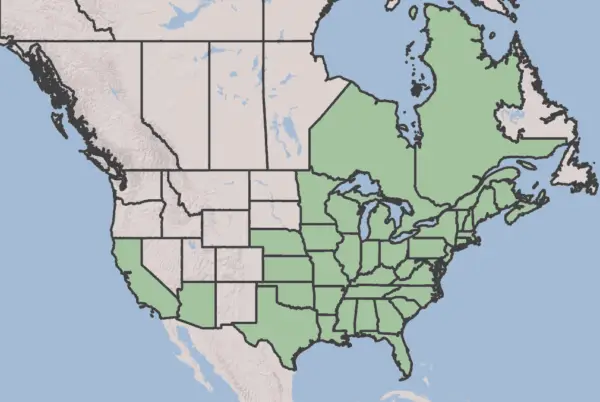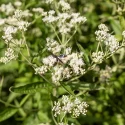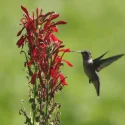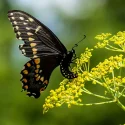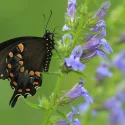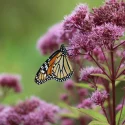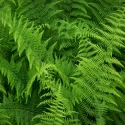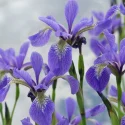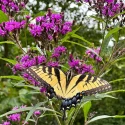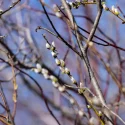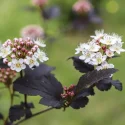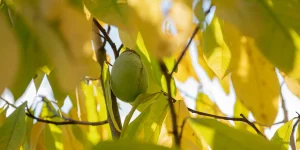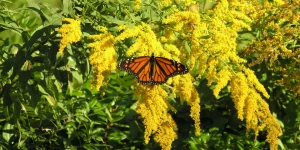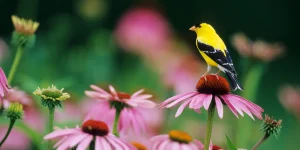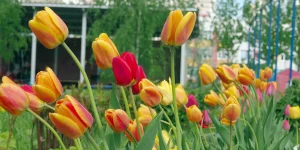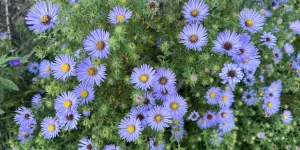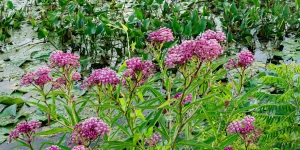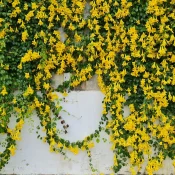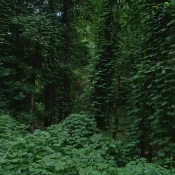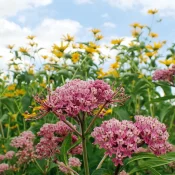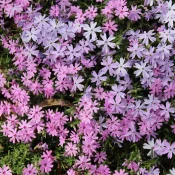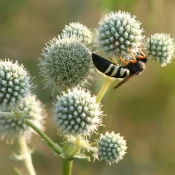Buttonbush
Buttonbushes are shrubs made for a wide range of sunny (or part-sunny) and wet areas. Their flowers look like fuzzy planets or a Dr. Seuss character. And it’s a butterfly magnet. Buttonbushes are native throughout the East Coast—from Maine down to Florida and west to Texas. Do you have a sunny-ish area that annoys you with standing water? Plant a Buttonbush. Scroll on for planting tips and lots of pictures.
- Full Sun, Part Sun
- Medium Shrub (6-10')
- Early summer flowers
- Rain Garden favorite
Buttonbushes are native shrubs that are incredibly easy to grow and return decades of beauty. In this article, we’ll cover the benefits of planting them, offer some landscaping suggestions, and end with ideas on where to source them for your home.
Let’s start with a basic question:
What are the benefits of planting Buttonbush?
Native plants have grown in an area for thousands of years. Every storm, weather event, and season they have lived through. There are no plants better suited to where you live.
There are thousands of plants native to North America, and Buttonbush is one of them. Buttonbushes offer lots of benefits for our gardens, including:
- Wildlife support (and sightings): Native plants are the food and habitat that birds, butterflies, and pollinators depend on to survive
- Save money, time, and water. Native plants let you be a lazy gardener. All they need is rain once they are established.
- Fuss-free resilience. Native plants are beautiful and have the resiliency to thrive in their home area’s climate (wander through our native plant library for proof)
- Rain garden beauty: Buttonbushes are perfect for rain gardens! Read on to find out more.
Where did the name Buttonbush come from?
The round flowers inspired the sweet moniker Buttonbush. These native shrubs have lots of other sweet common names that are perfect for naming your next pet, including Button Willow and Honeybells.
If you want to make sure a plant is a Buttonbush, look for its Latin name Cephalanthus occidentalis.
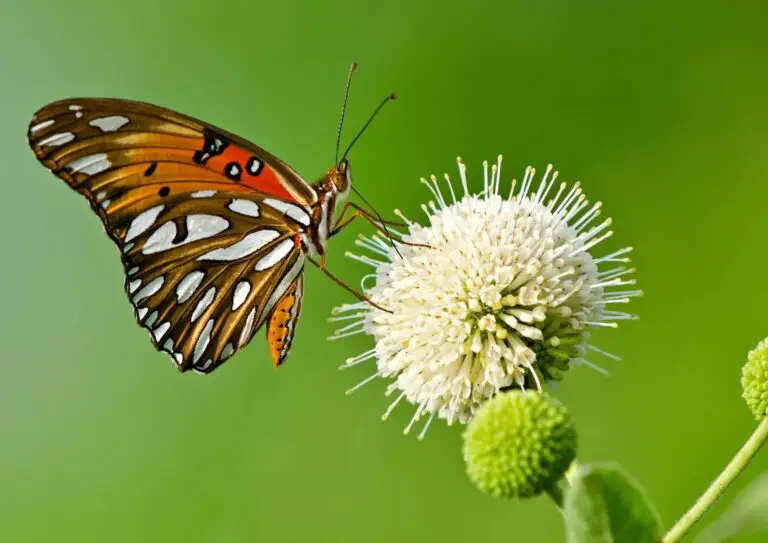
Buttonbush flowers are shaped perfectly for butterflies
The shape of the pom-pom flowers is perfect for butterflies to land on and warm themselves up. Butterflies need sunshine to help warm their bodies. This is why you’ll see butterflies sit on a plant and gently flutter their wings on a sunny day—they are cold and getting warmed up.
The flowers also help feed butterflies with their nectar. Planting a buttonbush is a win-win for having a beautiful yard while feeding butterfly communities.
Where is Buttonbush native?
Buttonbush is native to more than half of the United States, from Maine to Texas, along with California and most of eastern Canada.
How to grow Buttonbush
Buttonbushes are easy to grow, come back every year, and like a range of light:
- Buttonbush likes soil that is wet or consistently moist
- Buttonbush likes a wide range of sunlight, from full sun to part sun
- They are deciduous, so they will lose their leaves in the fall and winter
- Buttonbushes are perennials, so they will come back year after year
Buttonbushes are excellent in rain gardens
Buttonsbushes love wet places so they are perfect for rain gardens. They can also be happy alongside waterways, ponds, or even just areas that collect water. Do you have a swampy part of your yard and you’re sick of mowing in the mud? Time to save some time and money and replace that lawn with a Buttonbush.
Visit our Best Native Plants for Rain Gardens to find other water-loving ideas.
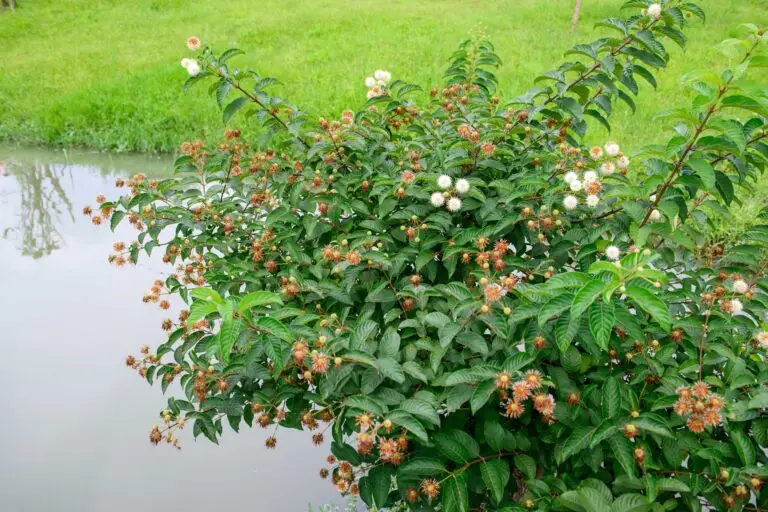
Can I plant a Buttonbush in a drier area?
Buttonbushes can tolerate a dry spot but will require consistent moisture to thrive. If you’re looking for no-fuss native gardening, ensure that Buttonbushes are in areas that get consistent water.
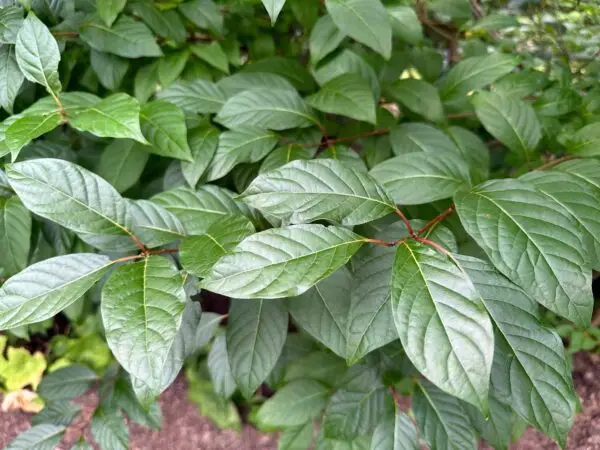
Even when not in bloom, Buttonbushes look great
When not in flower, Buttonbushes have glossy leaves paired with reddish stems. They will lose the leaves in the winter, leaving their sculptural branches on full display.
Where can I get a Buttonbush?
Buttonbushes are unique native shrubs that can be challenging to find at conventional plant nurseries. Here are some ideas on where you can better find your own:
Where can I find seeds and plants?
Finding native plants can be challenging (we partly blame Marie Antoinette.) To make it easier, we’ve assembled four sourcing ideas.
Native Nursery List
300+ native nurseries makes finding one a breeze
Online Native Plant Sellers
We've included 100+ online resources to help
Society Plant Sales
Every state has a native plant society; find yours
Online Communities
Local Facebook groups are a great plant source
What are good pairings for Buttonbush?
Buttonbushes are perfectly paired with other native plants that like wetter areas, like ferns, Golden Alexander, Mountain Laurel, and Cardinal Flower.
To sum it up, buttonbushes are extremely photogenic native shrubs that thrive in moist or wet areas, like rain gardens. They are butterfly favorites, too. Plant a Buttonbush (or a few!) and watch them return years and years of round blooms and pollinator parties. Happy planting!
Sources
- Johnson, Lorraine and Colla, Sheila. A Northern Gardener’s Guide to Native Plant and Pollinators; Creating Habitat in the Northeast, Great Lakes, and Upper Midwest. (2023), 174.
- Nelson, Gil. Best Native Plants for Southern Gardens. (2010), 307.
- Lady Bird Johnson Wildflower Center, Buttonbush
